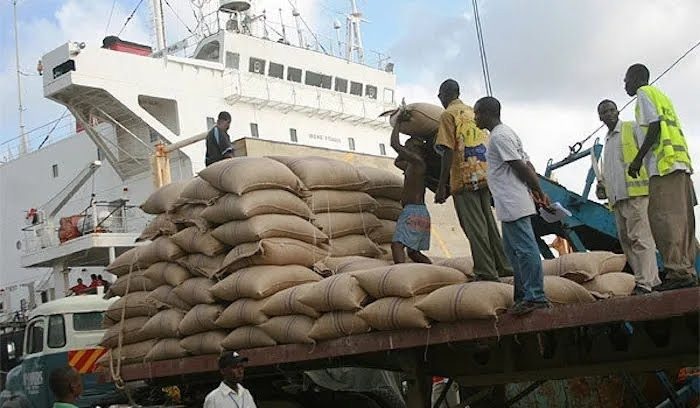The PUNCH reports that the Nigeria Customs Service will start implementing a zero percent import duty and exemption of Value-Added Tax on essential food items.
President Bola Tinubu approved zero percent import duty and a VAT exemption on essential food items.
The Ministry of Finance approved this on August 8, 2024. The Nigeria Customs Service confirmed this on Wednesday.
Bashir Adeniyi, the Comptroller-General of the NCS, told officials to start enforcing the new rules.
In a circular titled “Approval for the implementation of zero percent duty rate on basic food items,” the NCS said the Ministry of Finance sent a letter to the service, informing the agency that Tinubu has approved the implementation.
The letter from Deputy Comptroller-General C.K. Niagwan, dated August 14, 2024, said the food items are maize, brown rice, wheat, beans, and millet.
She said the policy is for the items listed and is from July 15 to December 31, 2024.
The letter said that the Federal Ministry of Finance had approved a zero percent duty rate and Value Added Tax exemption on some essential food items.
The policy applies to the items in the letter from July 15 to December 31. Investors with milling capacity and a Backward Integration Program can only import these items.
The deputy director said the finance ministry would provide the list of importers and approved quotas during implementation. He called for comprehensive coverage to ensure strict compliance.
“The Federal Ministry of Finance will give the Nigeria Customs Service a list of importers and their approved quotas to guide the importation of basic food items during the implementation period. “Please circulate widely to ensure strict compliance,” the letter added.
The government announced on July 10 that it would suspend duties on food imports to reduce inflation.
On August 7, the NCS said the duty waiver on imported foods would be implemented within the next week.
In the first letter, the finance minister said the measure to lower food prices in Nigeria would be limited to items that are in short supply.
The government cut the duty rate and levy on several foods, including husked brown rice, grain sorghum, millet, and maize. It also removed the 20% duty on wheat and beans.
Edun said importers must have milling capacity and a verifiable backward integration program to apply for the duty waiver.
BIP means sourcing raw materials locally.
This measure is meant to help reduce the high cost of food in Nigeria. It will be limited to the national supply gap, which a committee will determine.
“These items can only be imported by investors with milling capacity and a verifiable backward integration program,” the minister said.
On Tuesday, the customs service said the suspension of food import duties would cost the government about N188bn in revenue.
Adeniyi said the service would ensure the plan is followed by creating notable routes for food imports.

 Discuss
More news
Discuss
More news


